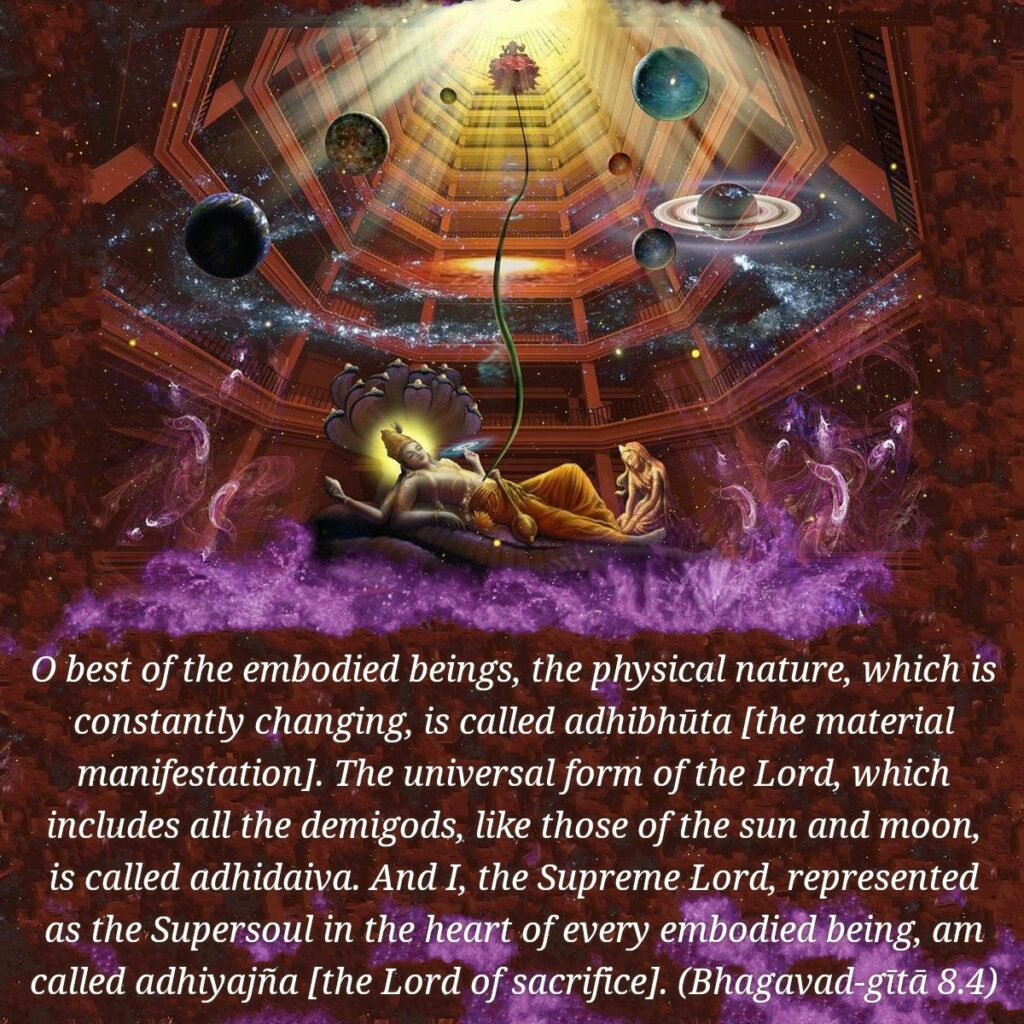अधिभूतं क्षरो भाव: पुरुषश्चाधिदैवतम् |
अधियज्ञोऽहमेवात्र देहे देहभृतां वर || 4||
adhibhūtaṁ kṣharo bhāvaḥ puruṣhaśh chādhidaivatam
adhiyajño ’ham evātra dehe deha-bhṛitāṁ vara
adhibhūtam—the ever changing physical manifestation; kṣharaḥ—perishable; bhāvaḥ—nature; puruṣhaḥ—the cosmic personality of God, encompassing the material creation; cha—and; adhidaivatam—the Lord of the celestial gods; adhiyajñaḥ—the Lord of all sacrifices; aham—I; eva—certainly; atra—here; dehe—in the body; deha-bhṛitām—of the embodied; vara—O best
Translation:
O best of the embodied souls, the physical manifestation that is constantly changing is called adhibhūta; the universal form of God, which presides over the celestial gods in this creation, is called Adhidaiva; I, who dwell in the heart of every living being, am called Adhiyajna, or the Lord of all sacrifices.
Commentary:
As the Lord declares that He dwells in the body as Adhiyajna, He is most near to every being. The Lord is not far away either in the sky or in the underworld. He permeates the body with his invisible presence. So it is man’s duty to discover Him by close self-examination. As the Lord is very near to all, no one should be hated or looked down with contempt. The divinity of man is thus declared by the Lord.
Arjuna is addressed here as ‘dehabhritamvara‘ implying that man holds the body, but he is certainly not the body.
Question: What is Adhibhuta?
Answer: The perishable element, all of the objective universe is called Adhibhuta.
Question: What is Adhidaiva?
Answer: Viratpurusha or Hiranyagarbha.
Question: What is Adhiyajna?
Answer: Lord Krishna – Paramatma is Himself the Adhiyajna in this body.
Bhagavad Gita: Chapter 8 🔻 (28 Verses)
